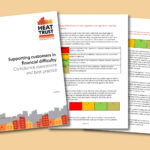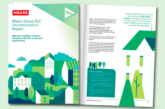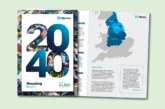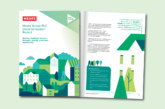In response to the unprecedented increase in wholesale gas prices, and the knock-on impact this has had on the cost of heating for those with communal or district heating systems, a new report reveals the current levels of customer support provided by communal and district heat network operators and highlights best practice for the sector.
Heat Trust, the national consumer protection scheme for heat networks, undertook a compliance project to check that its registered heat suppliers were providing adequate support to customers at risk of financial difficulty.
The report found that over 70% of heat networks surveyed had compliant procedures for identifying customers in need of extra support when regulation comes in.[1]
Another positive finding was that almost four-fifths of heat networks surveyed have easily accessible support in place for customers, greatly reducing the likelihood of non-compliance.[2]
The report also highlights suggested best practice, such as heat networks forming partnerships with debt support charities, making it a useful guide for the whole heat network industry.
The aim is that all heat network operators will review their current practices and processes in this area and, where necessary, make changes and improvements in advance of winter to provide the best possible support to their customers.
The report considers best practice under three main themes and provides guidance on heat suppliers having:
- Systems to identify customers in need of additional support.
- Support mechanisms in place that are clearly communicated to customers, easily accessible, and tailored to their needs.
- Processes in place to review, monitor and improve their provision of customer service and support based on customer feedback.
As the industry awaits the passage of the Energy Bill, being debated in the House of Lords, Heat Trust believes it is likely that heat network operators will need well developed processes aligned with these themes to meet the requirements of the formal regulatory framework that Ofgem will operate in the future.
Commenting, Richard Bellingham, Head of Compliance and Audit at Heat Trust, said: “It was gratifying to see so many of the heat suppliers registered with Heat Trust are compliant with the scheme rules in this area and, in some cases, go beyond the requirements. This demonstrates strong support for customers that are struggling financially.
“It was also greatly insightful to see the areas where heat networks are most at risk of non-compliance, and this will help us shape the support we provide.”
Stephen Knight, Director of Heat Trust, added: “Communal and district heating customers aren’t protected by a price cap, and so the recent massive increases in wholesale gas prices are often resulting in much larger price rises than domestic gas customers are experiencing. In this context, it is critical that operators do everything they can to support customers in financial difficulty.
“Whilst we are delighted that the Energy Bill now before Parliament includes price protections for customers in the future, these protections will not help customers this winter or next.
“In the meantime, we hope that this report will help network operators put appropriate support in place for those struggling with their bills.
“We also encourage more operators to register their heat networks with Heat Trust to provide their customers with protection and to give them a head start with the upcoming regulation. It’s the best way they can become regulation-ready!”
The full report is available here.
[1] 71% of heat networks surveyed have identification processes that are at low risk of non-compliance (green or gold, Outcome 1). ‘Supporting customers in financial difficulty Compliance assessment and best practice’, Heat Trust, July 2022, p. 9.
[2] 79% of heat networks surveyed have readily accessible support and communication that puts them at low, or very low, risk of non-compliance (green or gold, Outcome 2), p. 15.









